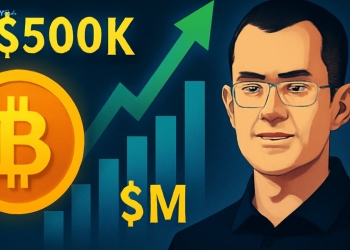Taiwan’s Financial Supervisory Commission (FSC) has reportedly declared a massive change in its investment policies, enabling professional investors to reach foreign Digital Asset ETFs with the help of sub-brokerage services. This step is expected to bring new paths for investors looking for diverse portfolios, particularly in the fast-evolving digital asset market. The FSC has crafted this regulation to improve local brokerage processes while keeping austere surveillance of the risks linked to these types of investments.
Who Can Invest in Digital Asset ETFs?
According to the new policy, only professional investors can trade in foreign Digital Asset ETFs. These users include individuals with elevated net worth, institutional investors, and bodies or funds that are officially labelled as professionals. The FSC stressed that strict measures will be enforced to ensure that only the ones with enough expertise and experience in digital assets will be able to invest. Securities firms are expected to implement a suitability system to ascertain whether a potential investor can trade in Digital Asset ETFs. The FSC explained:
“Securities firms must evaluate the client’s knowledge and experience before facilitating a transaction.”
Along with the suitability checks, non-institutional investors are allegedly expected to sign a risk disclosure statement before making their first trade in Digital Asset ETFs. This document will delineate the characteristic risks of digital assets, making sure that the investor is completely informed before entering the market.
Additionally, for enhanced investor protection, regular training sessions on virtual asset products will be compulsory for securities firms. This will ensure that the ones who are enabling trades are expert in the specifics of Digital Asset ETFs and can provide true and latest consultation to their clients.

Fortifying Local Brokerage Processes
By extending access to Digital Asset ETFs, the FSC supposedly aims to push local brokerage firms’ sub-brokerage operations. These firms now have the chance to provide a wider range of products, hence, improving their business portfolios. The FSC acknowledges that offering access to diverse investment channels will benefit professional investors while solidifying Taiwan’s brokerage industry by augmenting the variety of services offered.
However, the FSC stays aware of the risks. Virtual assets, particularly the ones traded through Digital Asset ETFs, are usually unstable and can bring seizable losses if not managed astutely. Therefore, the FSC emphasizes the need for securities firms to meticulously evaluate their clients’ qualifications to invest in these products.
Moreover, FSC has reportedly taken the responsibility of closely monitoring the execution of sub-brokerage services, making sure that investors’ rights are safeguarded at all times. As digital assets change with time, the regulatory frameworks will also follow suit accordingly. The FSC is committed to refining and fortifying the policies regarding Digital Asset ETFs to adapt to market shifts and new advancements in digital finance. Securities firms also need to acquire board approval before allowing any trade in Digital Asset ETFs.
The Impending Fate of Digital Asset ETFs in Taiwan
Bringing Digital Asset ETFs to Taiwan’s market could set a strong edifice for future policy developments in the area of digital finance. As the global market for digital assets extends and grows, Taiwan’s policymakers are expected to improvise and change according to international trends while keeping investor safety a priority in their objectives.

To summarize, the FSC’s decision to open the market for Digital Asset ETFs to professional investors demonstrates an understanding of the demand for diversified investment products along with the maintenance of a guarded approach to risk management. With compulsory risk information, suitability checks, and current monitoring, Taiwan’s regulatory structure aspires to offer a safe and informed investment landscape for those working in the world of digital assets. Learn more about regulations in digital assets with TurkishNYRadio.































































































![BitTorrent [New]](https://s2.coinmarketcap.com/static/img/coins/64x64/16086.png)













